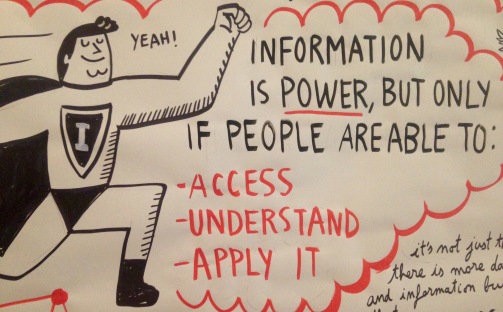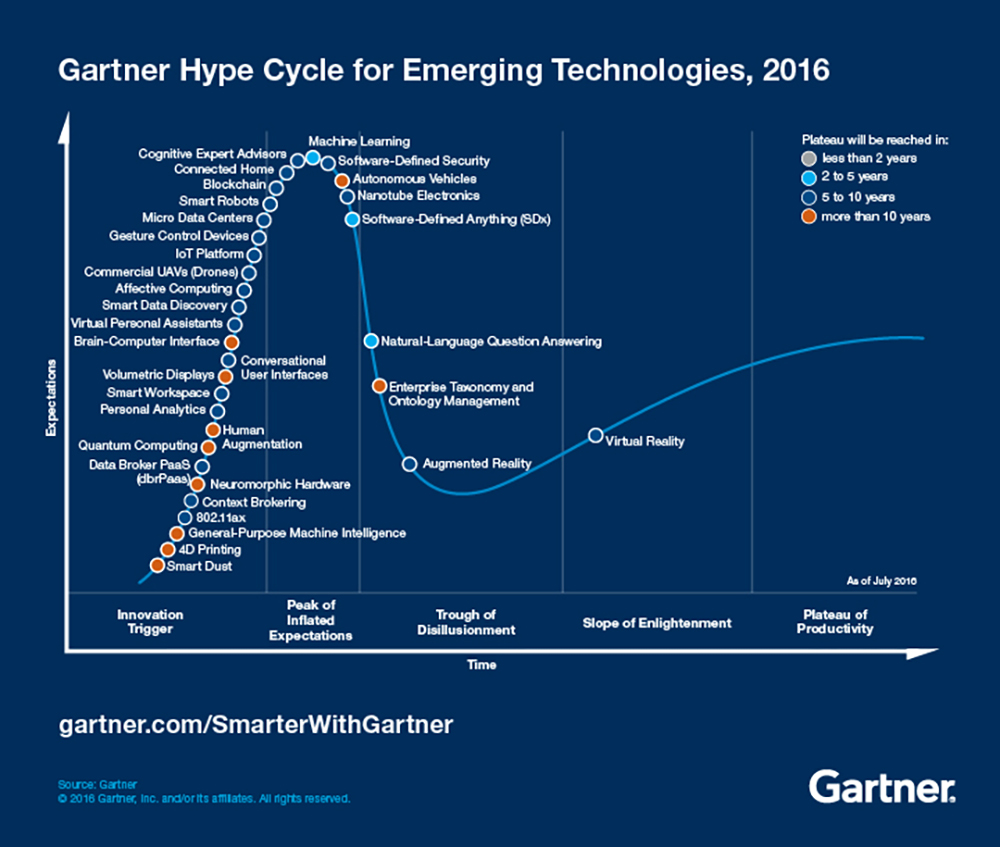
There are a number of trends that have been on the top of everyone’s mind in the recent years: blockchain, big data analytics and machine learning to name a few. In the coming year, those hyped concepts will start transforming into practical tools your business can take advantage of to boost its competitiveness, acquire customers and explore new commercial opportunities. Here are a few sample applications of data technologies.
Smart contracts on blockchain
A new way to build organisations and contracts. In 2016, a virtual organisation named DAO completed the biggest in history crowdfunded fundraising at $150m. DAO stands for Decentralised Autonomous Organisation, and it works on blockchain smart contracts, where business rules are coded into the algorithm of a firm’s operations.
The agreements that you strike now can be validated and enforced via an encrypted set of rules. While the theoretical model describes smart contracts implemented purely in code, for many practical purposes such commercial contracts will represent a combination of natural language base and encoded elements such as automatic payment triggers.
For example, IoT devices in a supply chain can signal about completion of manufacturing or delivery stages. In addition to increased reliability, it provides transparency of the processes and speeds up supply cycle.
Personal data mining
Traditionally, personal information available to businesses on its users was limited to whatever a user explicitly shared, such as name, email and occasionally location and gender assumed from whether it is Ms. or Mr. in the title. These days, possibilities to extract personal information online are almost limitless.
One example is Facebook allowing anyone who has received a user’s permission to access his or her details via Facebook API to gain data on person’s political and sexual preferences, history of travel and location visits via check-ins, education, employment and many other parameters.
Cambridge Analytica claimed its decisive role in the Trump victory, using a narrow socio-behavioural targeting on Facebook enabled by psychographic profiling. While the real causes for this unexpected outcome may be more complex, this case illustrates how easy it is to manipulate people at large scales via data obtained without their direct consent.
Data brokerage and insight-as-a-service
Data brokerage is an established industry that is powered by personal or commercial data mining. Now it receives a significant boost by an exponential growth of data sources from devices and web, and development of capabilities for big data collection and processing.
Gartner (see the illustration below) named data brokering platforms and smart data discovery among some of the emerging trends in tech. Platforms will mean easier access to buying and selling data, as well as an abundant market for knowledge on demand, so your business can build a real competitive advantage on a smart data exchange strategy.
Open innovation is another area that will benefit from Data Platform As A Service (PaaS) models here. HumanAPI is a good example of how medical data marketplace can function. The service provides a platform for any medical device, app, biotech research or other service to get access to aggregated personal health data.

With the abundance of new technological solutions it is important to focus the bottom line goals: better services for people and more efficient marketplaces. Keeping those in mind, executives can make a right choice of investing into the most relevant emerging technologies.